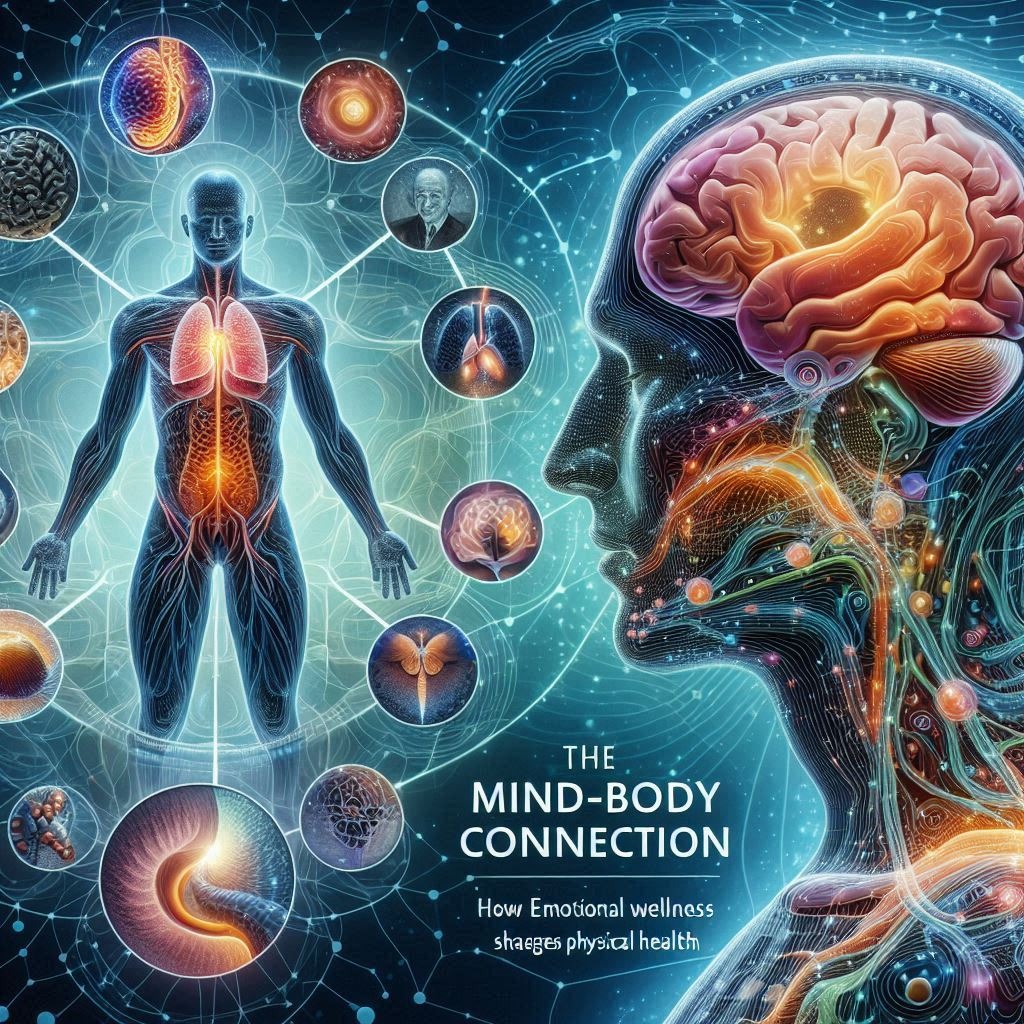
The Mind-Body Connection: How Emotional Wellness Shapes Physical Health
Modern medicine and ancient wisdom finally agree on something: your mind and body are in constant conversation. Stress, anxiety, joy, and gratitude don’t just live in your head—they create ripples through your immune system, your heart, and even your gut. Let’s break down the science of how emotions influence your physical health—and how you can harness this connection for a healthier, happier you.
1. Stress and Your Immune System: The Biological Tug-of-War
When stress hits, your body goes into “fight-or-flight” mode, releasing cortisol and adrenaline. These hormones are useful in short bursts, but when stress becomes chronic, they weaken your immune response.
-
The Evidence: Dr. Sheldon Cohen, a psychology professor at Carnegie Mellon University, found that people under chronic stress were more likely to catch the common cold because their immune defenses were suppressed (Proceedings of the National Academy of Sciences, 2012).
-
Why It Matters: When your stress levels stay elevated, your body struggles to fight infections and even recover from injuries as efficiently.
Quick Tip: Incorporate short “stress breaks” throughout your day—deep breathing, a five-minute walk, or even a song you love can reset your nervous system.
2. Anxiety and Heart Health: A Dangerous Duo
Anxiety doesn’t just weigh on your mind; it strains your cardiovascular system. Chronic anxiety can raise blood pressure, increase heart rate, and contribute to inflammation—all risk factors for heart disease.
-
The Evidence: The American Heart Association notes that people with high anxiety levels have a higher risk of heart attack and stroke (Circulation, 2021).
-
What’s Happening: Anxiety keeps your body in a state of hyperarousal, which can lead to vascular damage over time.
Quick Tip: Simple grounding techniques—like the “5-4-3-2-1” sensory method—can help calm your nervous system and reduce anxiety’s physical toll.

3. Mindfulness and Meditation: More Than “Feeling Zen”
Meditation and mindfulness aren’t just spiritual fluff—they have measurable effects on the brain and body.
-
The Evidence: Dr. Sara Lazar of Harvard Medical School found that regular meditation can thicken the prefrontal cortex, improving emotional regulation and lowering cortisol levels (Psychiatry Research: Neuroimaging, 2011).
-
Physical Benefits:
Lower inflammation markers
Improved immune response
-
Reduced chronic pain
Quick Tip: Start with five minutes a day. Apps like Calm or Insight Timer can help you stay consistent without feeling overwhelmed.
4. Yoga and Movement: Aligning Mind and Body
Yoga combines controlled breathing, mindful movement, and physical postures—creating a triple threat for wellness.
-
The Evidence: A study in the Journal of Alternative and Complementary Medicine found that people who practiced yoga regularly showed lower inflammatory markers and reported less chronic pain.
-
Why It Works: Yoga stimulates the parasympathetic nervous system, reducing stress hormones while improving flexibility and circulation.
Quick Tip: Even 10 minutes of basic stretches and deep breathing in the morning can reset your stress response for the day.

5. Gratitude and Joy: The Unsung Heroes of Health
Positive emotions like gratitude and joy do more than just make you smile—they create measurable physiological benefits.
-
The Evidence: A 2020 review in the Journal of Positive Psychology found that daily gratitude practices lowered blood pressure and improved heart rate variability, a key marker of stress resilience.
-
What’s Happening: Positive emotions reduce inflammatory responses and support healthier sleep and digestion.
Quick Tip: Keep a “one-line gratitude journal”—jotting down one thing you’re thankful for each night can shift your brain toward positivity.
6. Bridging Ancient Wisdom and Modern Science
For centuries, holistic practices like meditation, yoga, and controlled breathing have claimed to balance mind and body. Modern neuroscience and immunology now back these claims with hard data, proving that emotional wellness isn’t just a feel-good luxury—it’s a biological necessity.

Takeaway: Your Mind and Body Are Teammates
Your emotions aren’t separate from your physical health—they’re key players. By managing stress, practicing mindfulness, moving your body, and cultivating positive emotions, you can actively strengthen your immune system, protect your heart, and boost your overall well-being.
Start small: a two-minute breathing exercise, a gratitude list, or a short yoga flow. Your body will thank you—science says so.
For More Professional Based Articles and Videos, CLICK HERE
NCWellnessHub.com
 Add Row
Add Row  Add
Add 




Write A Comment